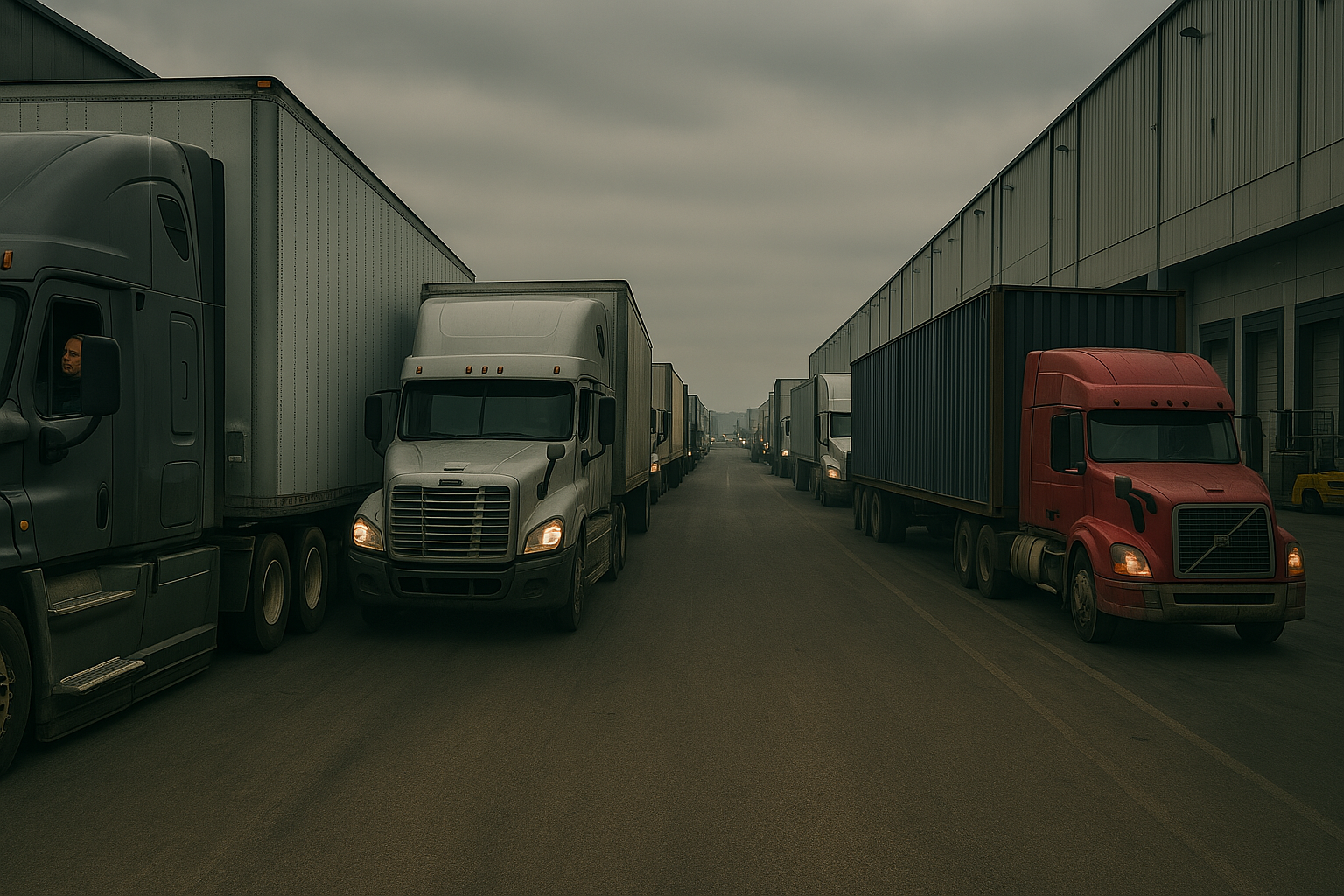
3 Signs Your Logistics Partner Isn’t Built to Scale with Your Business
Your business isn’t the same today as it was a year ago—and it won’t be the same a year from now. As growth accelerates, your logistics network must evolve to match. But not every freight broker or 3PL is equipped for that journey. Some providers are excellent at the basics—covering spot freight, sending quotes quickly, or getting trucks on short notice. But when your volume increases, when complexity rises, or when customers expect more—those same providers often show signs that they can’t keep up.
If your logistics partner isn't scaling with you, they're likely slowing you down. Here are three clear signs it’s time to re-evaluate your freight partner before they become a bottleneck to your growth.
1. They Can’t Flex With Volume or Market Shifts
Scalable logistics isn’t just about how many trucks your broker or partner can book—it’s about whether they can respond to change with speed and consistency. When business is booming, promotions are running, or customer demand spikes, your supply chain needs to ramp up fast without missing a beat.
Unfortunately, many freight brokers or 3PLs operate with shallow carrier networks or limited infrastructure. When demand increases, they don’t scale with you—they scramble to keep up, often leaving you with late trucks, higher rates, or complete silence.
Some of the telltale symptoms include:
-
Scrambling for last-minute coverage
-
Passing off inflated rates with little explanation
-
Failing to meet delivery windows due to capacity shortages
When your freight partner lacks surge planning or strong carrier relationships, you're left absorbing the risk—and the cost.
Ask yourself:
“Can my current provider handle double our volume without sacrificing service quality?”
“Do they offer surge capacity planning, dedicated lanes, or long-term freight strategy discussions?”
“Are they proactive in tight markets—or do they disappear when things get hard?”
A logistics partner built for scale doesn’t wait until there’s a problem. They plan for it.
2. They Struggle With Multi-Location or Multi-Mode Freight
As businesses expand, freight operations inevitably become more complex. What starts as regional truckload shipments from a single warehouse often evolves into something far more dynamic—multi-location sourcing, LTL optimization, last-mile delivery, and even intermodal solutions. If your current provider excels at single-lane full truckloads but freezes up the moment you add a second DC or shift your mix of freight modes, you’ve already outgrown them.

We hear it all the time:
“Our logistics partner was great when we only had one location, but now we’re juggling distribution across five sites—and everything’s starting to fall through the cracks.”
A logistics partner that can scale offers more than just booking power. They bring structure and clarity to complex networks, often supporting:
-
Freight consolidation and mode optimization
-
LTL and FTL coordination across regions
-
Coordination between warehouses and end-customers
-
Systems integration with your TMS, ERP, or OMS platform
Look for:
Freight planning capabilities across multiple locations
Access to various modes (LTL, FTL, intermodal, expedited)
Strategic input and technology tools for complex distribution models
Experience working with companies who manage high mix/high volume operations
If they can’t grow with your complexity, they aren’t built to be part of your future.
3. They Don’t Offer Strategic Support—Only Load Coverage
In a fast-paced business, it’s easy to treat freight as a day-to-day task. You need trucks. They provide trucks. End of story, right?
Not if you want to grow.
As your business scales, so does the need for strategic logistics thinking. That includes cost control, carrier performance, market forecasting, and capacity planning. If your broker isn’t helping you improve those areas, they’re not supporting your growth—they’re just reacting to it.
Unfortunately, many freight providers operate in a purely transactional model. They cover the load and move on. There’s no conversation about how to streamline freight spend, consolidate shipments, or build a resilient network.
Here’s how you know your current partner is falling short:
-
They never ask about your business objectives, growth targets, or future plans.
-
They don’t help you forecast volume or identify risk in your current network.
-
They don’t offer reporting, insights, or post-shipment performance reviews.
-
They communicate only when there’s a fire to put out—not to improve the process.

True strategic freight partners help with:
-
Analyzing trends in your shipping data
-
Recommending freight mode shifts to save costs
-
Providing monthly or quarterly performance reporting
-
Offering dedicated account support and logistics insights
Ask yourself:
“Is my current broker helping me improve—or are they just moving freight?”
If your logistics partner isn’t showing up with ideas, insights, and proactive solutions, they’re not built to scale. They’re built to cover freight—and that’s not the same thing.
Conclusion: Freight Should Scale With You—Not Hold You Back
Logistics is one of the most critical levers in a growing business. It touches every part of the customer experience and influences margins, timelines, and brand credibility. If your freight provider is struggling to keep up—or avoiding strategic conversations altogether—you’re not scaling, you’re settling.
At Bailey’s Logistics, we work with companies at every stage of growth to build logistics strategies that scale up without breaking down. Whether you're shipping 10 loads a week or 1,000 across multiple facilities, we bring the systems, support, and strategic thinking to help you move forward with confidence.
Ready to Build a Freight Strategy That Grows With You?
Don’t wait until your supply chain breaks to rethink your logistics partner.
We’ll analyze your current freight setup, identify friction points, and offer actionable recommendations to help you scale smarter.